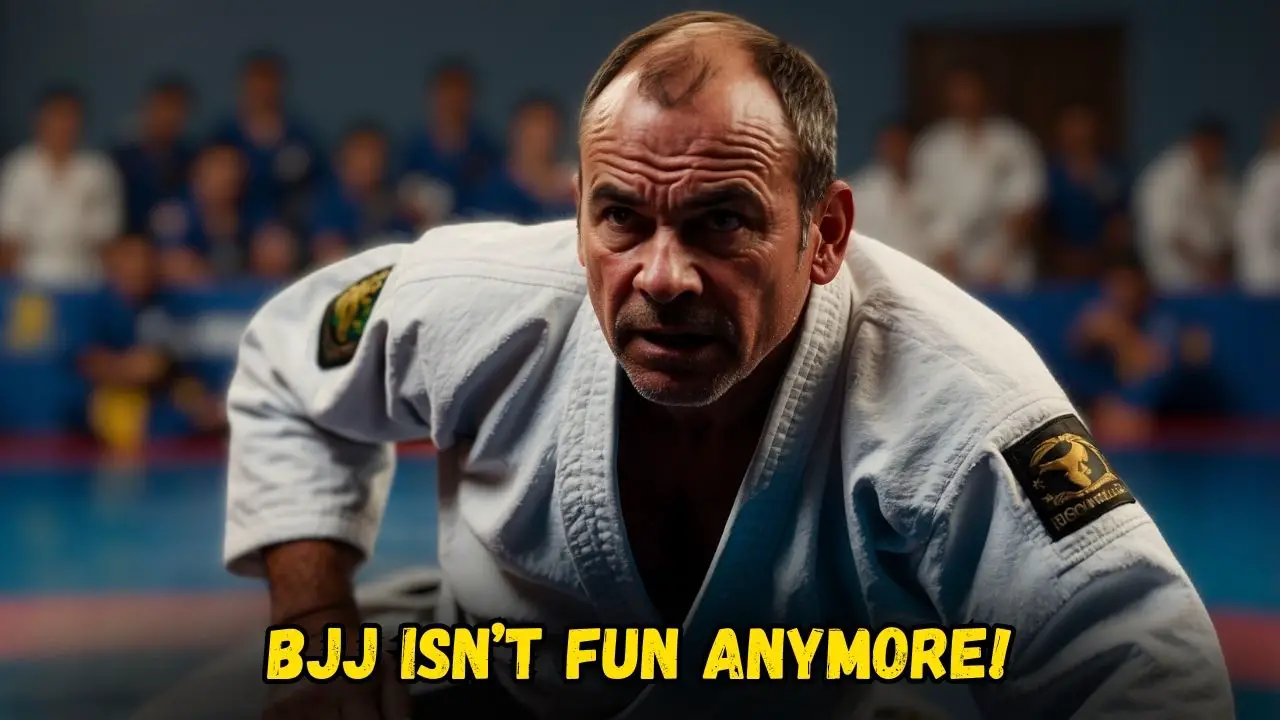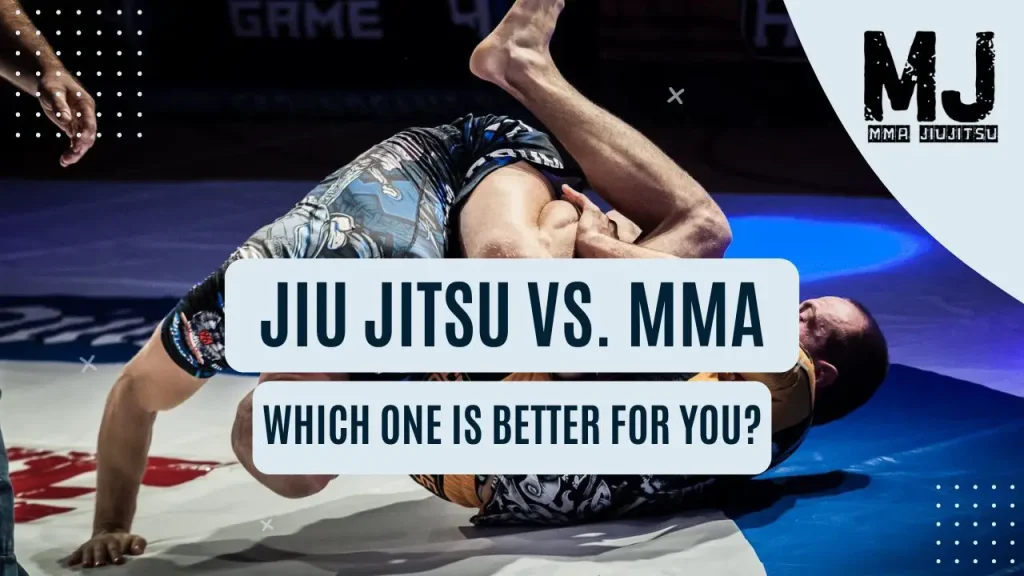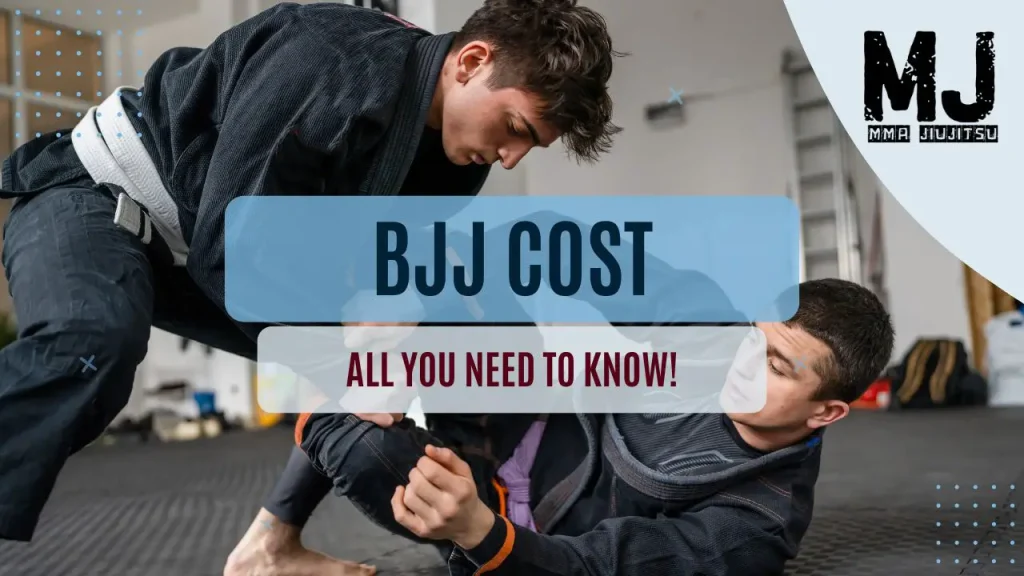Every Jiu-Jitsu practitioner, especially those of us who started later in life, eventually reaches a plateau.
You know, that moment when you walk into the gym and wonder, why am I even doing this anymore? The spark is gone. The rolls feel like a grind. Progress? Nonexistent.
And if you’re an older grappler, it can feel like the game is just leaving you behind. I get it. And you probably do too!
The Hard Truth About Aging in BJJ.
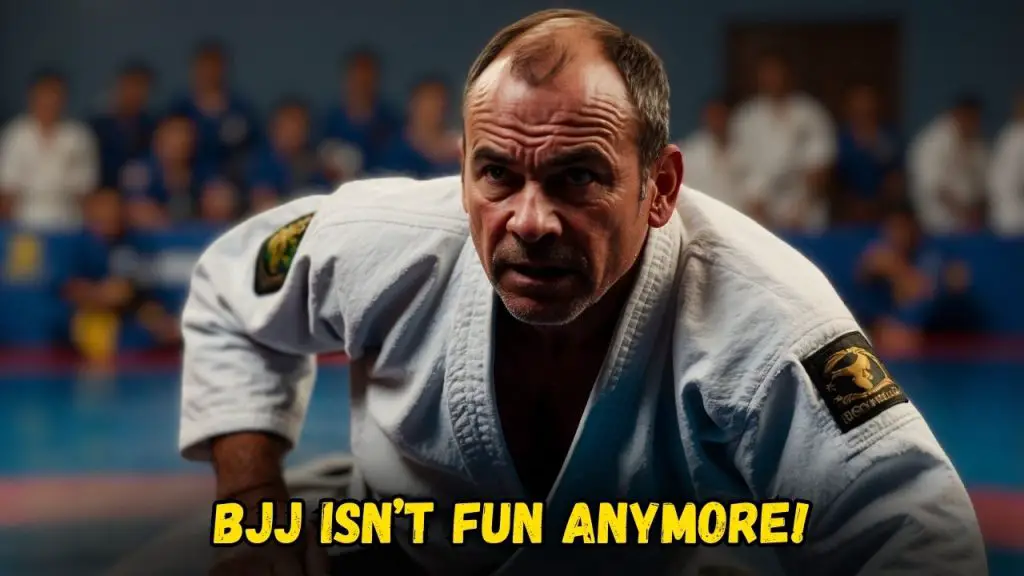
Look, Jiu-Jitsu is hard for everyone. But when you’re pushing 50, 60, or even beyond, the challenges feel different. The body doesn’t recover the way it used to. The moves don’t click as quickly.
And let’s be honest, rolling with young, athletic 20-somethings? It’s like trying to fight a tornado. One second you’re setting up a sweep, the next you’re defending a choke, and the whole round is just survival.
If you’ve ever left the gym feeling more frustrated than fulfilled, you’re not alone. And if you’ve ever thought, Man, maybe I just don’t have it anymore, you’re not alone there either.
Reframing Your Expectations: You’re Not 25 Anymore—And That’s Okay!
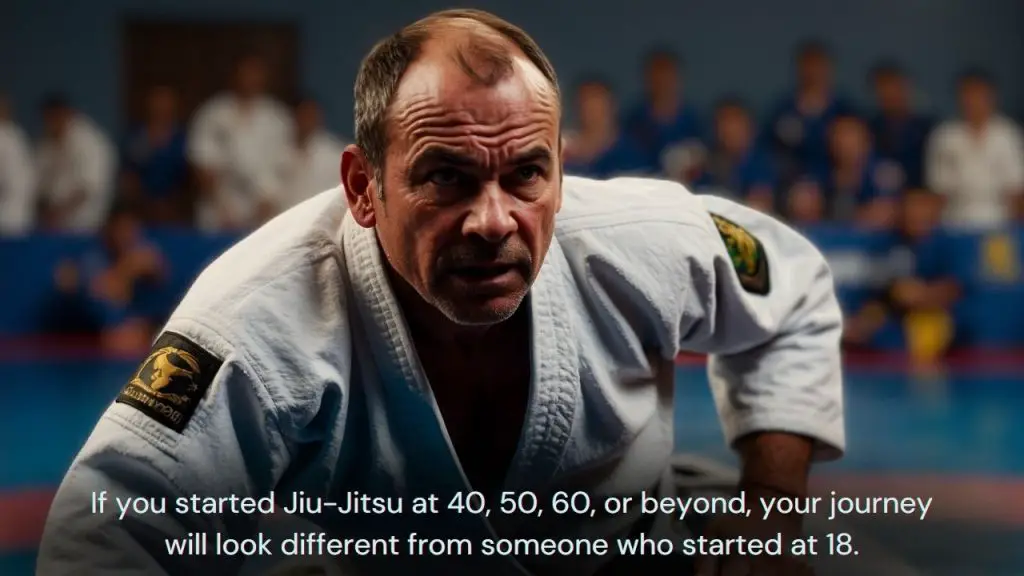
A big reason people burn out in BJJ—especially older students—is because of expectations. You expect to get better. You anticipate being able to compete effectively. You expect to feel progress. And when that doesn’t happen, it’s demoralizing.
However, it’s crucial to adjust the objectives. Right?
If you started Jiu-Jitsu at 40, 50, 60, or beyond, your journey will look different from someone who started at 18. And that’s okay. You’re not here to be the next ADCC champ. You’re here for something else.
So, ask yourself: Why did I start? What do I actually love about this?
- Is it the camaraderie? The friendships?
- Is it the mental challenge of solving problems on the mats?
- Is it staying active and proving to yourself that age doesn’t define you?
Your definition of “success” in Jiu-Jitsu has to evolve. If you’re stuck in the mindset of, I should be able to do this by now, or Why am I still getting smashed? you’re setting yourself up for frustration. Instead, shift your focus to:
✔ How can I train smarter, not harder?
✔ How can I enjoy this journey, even if progress is slow?
✔ How can I adapt to make Jiu-Jitsu work for me?
Winning in Jiu-Jitsu Without “Winning”
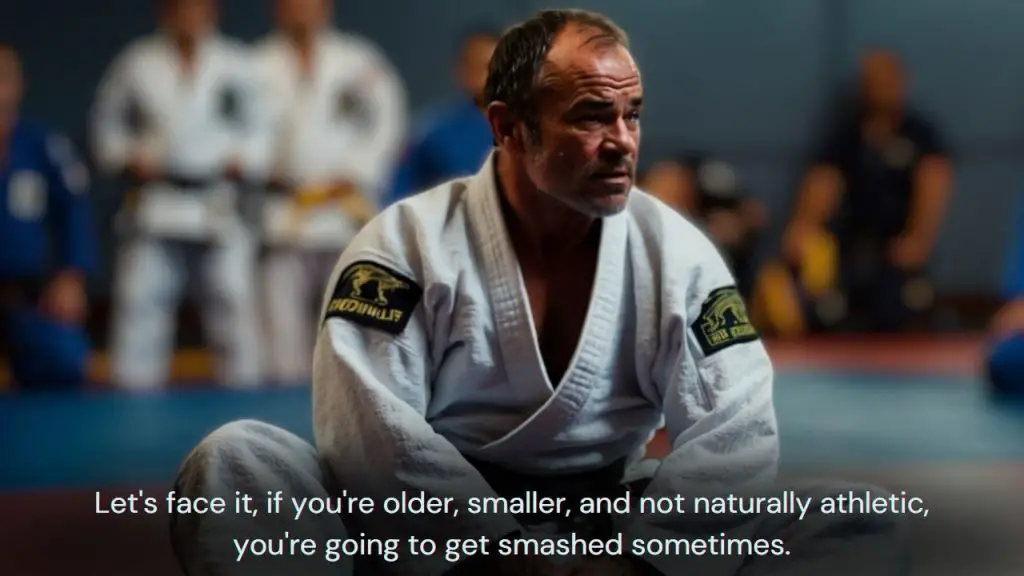
Let’s face it, if you’re older, smaller, and not naturally athletic, you’re going to get smashed sometimes. However, the best older grapplers I know have learned to play the game differently.
Here are a few things that can help:
1. Drill More, Roll Less: Rolling is fun, but it’s also physically demanding. If you’re getting banged up or feeling exhausted, spend more time drilling. Ensure you complete your repetitions without the strain of high-speed rolling.
2. Find Training Partners Who Challenge You—But Don’t Break You: Rolling with monsters all the time can drain your confidence. Mix it up. Roll with people who challenge you, but also roll with people at your level or below. Those rounds help reinforce your skills and build confidence.
3. Redefine Fun: If your enjoyment stems solely from winning, you’re likely to encounter challenges.Instead, make small goals:
- Survive longer before getting submitted.
- Work on a specific escape instead of worrying about the overall roll.
- Focus on movement and fluidity instead of strength.
- Just enjoy the process.
4. Practice Jiu-Jitsu, Don’t Fight Jiu-Jitsu: When you stop viewing every roll as a battle and start treating it as a learning experience, something shifts. You relax. You experiment. You stop caring about “winning” and just let the roll unfold. And that’s when Jiu-Jitsu becomes fun again.
You’re Still in the Game — And That’s What Matters
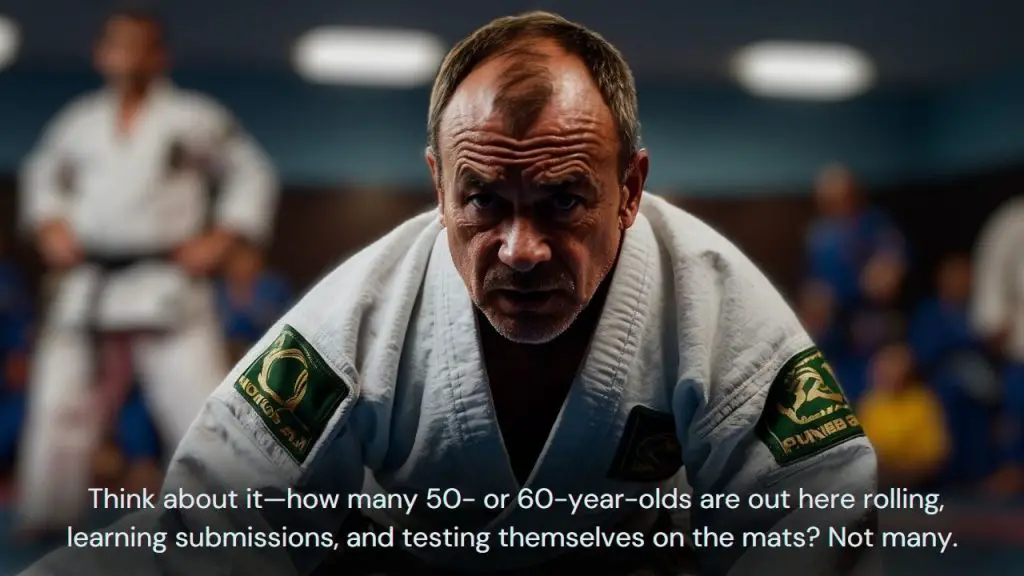
Think about it—how many 50- or 60-year-olds are out here rolling, learning submissions, and testing themselves on the mats? Not many. You’re part of a rare group. Just by stepping on the mats, you’re already doing something incredible.
Indeed, it’s possible that you won’t consistently produce youthful, athletic purple belts. Maybe you’ll never be the strongest or fastest. However, you can be the individual who consistently shows up, continues to learn, and integrates Jiu-Jitsu into his life—according to his own terms.
So, what do you do when Jiu-Jitsu isn’t fun anymore?
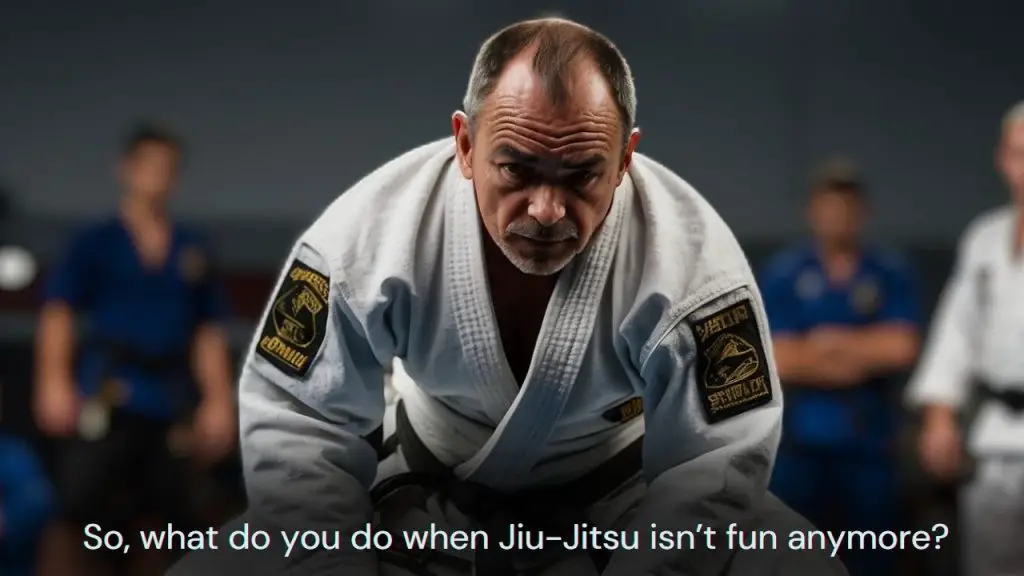
You shift your mindset. You adjust your expectations. You find new ways to enjoy the game. And above all, you keep going. Because at the end of the day, that’s what really matters.
Jiu-Jitsu isn’t about winning. It’s about staying in the fight.
Want to level up your Jiu-Jitsu? Watch the full beginners’ playlist now on YouTube!
Thanks for reading! ━ ◦ ❖ ◦━ Sign up for my newsletter to get new stories as soon as I publish them.

